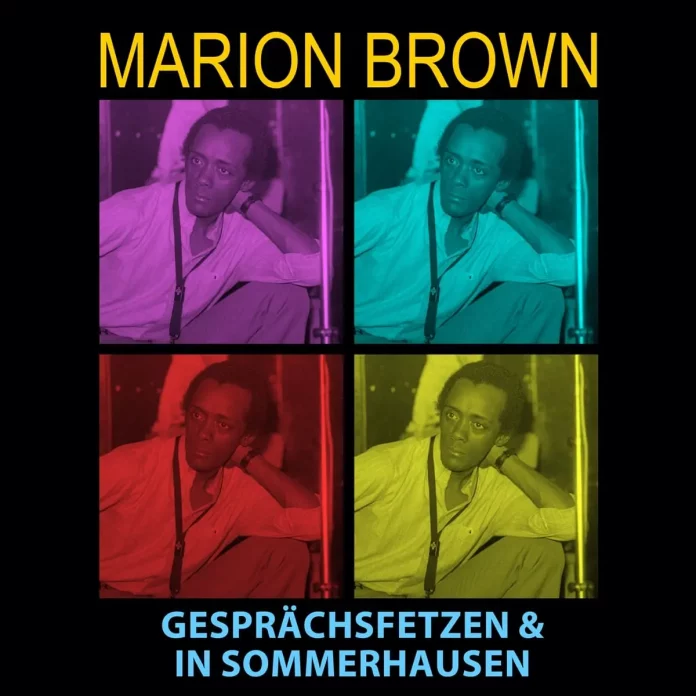One of the more interesting figures to appear in the mid 60s, Marion Brown adapted a post-Coleman alto style with a flexible approach that varied from his early association with Shepp, Coltrane and other free-form outfits, through to more contemplative work with Harold Budd. These are live recordings in Munich (originally issued on Calig CAL30601)and Würzburg (CAL30605), when Brown was based in Europe.
There’s a pattern here of calm beginnings, sometimes just alto and vibes, feeling their way round each other, joined by other instruments which, after Ambrose Jackson’s trumpet clarion call on Gesprächsfetzen, build to intensity, Steve McCall pushing menacingly and urgently. Likewise, ethereal vibes and percussion interrupt the ongoing storm on Tomorrow Is The Beginning.
Exhibits A and B are solo tracks for Brown, explorations of sound, and on the latter, breathy whispers, overblows, squawks and scrapes, an indication of his precept: “I want my horn to sound more and more like the human voice” as he sought to push towards newer areas of expression.
The more conventional Jackson tends to keep to clearly delivered notes, rather than bending or breaking up the sound, whether in tandem with Brown’s alto, on the recurring anthemic motif of Babudah, where his mariachi style is mirrored by a Spanish feel, or on the atmospheric The Sound Of A Song, in which he is shadowed by a smoothly lucid alto and Jeanne Lee’s wordless vocals, pitch perfect. Lee also supplies barely decipherable words on Malipieros Midnight Theatre, part of the kaleidoscopic free-for-all which even includes a few bars of Muskrat Ramble.
Making his presence felt throughout, the impressive McCall leads the collective percussion on Dance No.1, creating a highly polyrhythmic backcloth, supporting Brown’s vividly melodic line and Gunter Hampel’s vibes. Similarly his drums take control on Dance No.2, although more relentlessly, the alto tenacious and briefly raucous, and on Il Ne Chant Pas, the male voice unspecified.
An album of contrasts, exploring the divergence, variation and spontaneity within free jazz at the time.
Discography
(1) Gesprächsfetzen; Exhibit A; Babudah; Tomorrow Is The Beginning Of The End Of Yesterday; Aba; (2) Dance No.1; Exhibit B; The Sound Of A Song; Malipieros Midnight Theatre; Il Ne Chant Pas; Dance No.2 (80.44)
Brown (as) with (1) Buschi Niebergall (b); Steve McCall (d); Ambrose Jackson (t); Gunter Hampel (vib, bcl). Munich, 20 September 1968.
(2) as (1) but Daniel Laloux (b) replaces Niebergall; add Jeanne Lee (v, pc). Würzburg, 17 May 1969.
Moosicus M1219-2
















